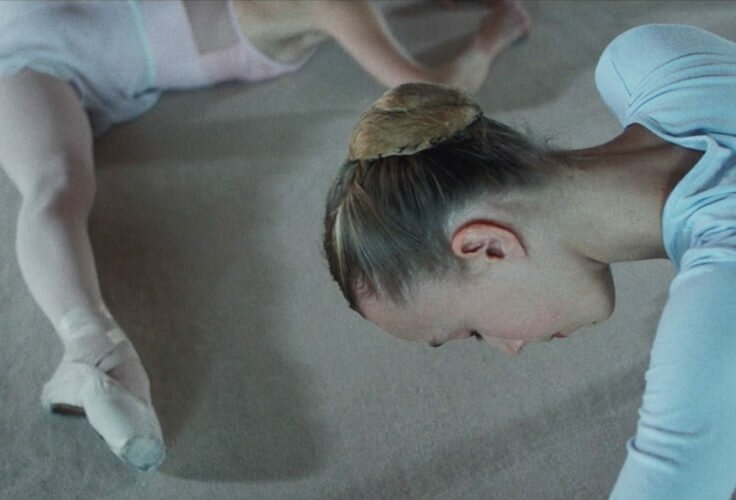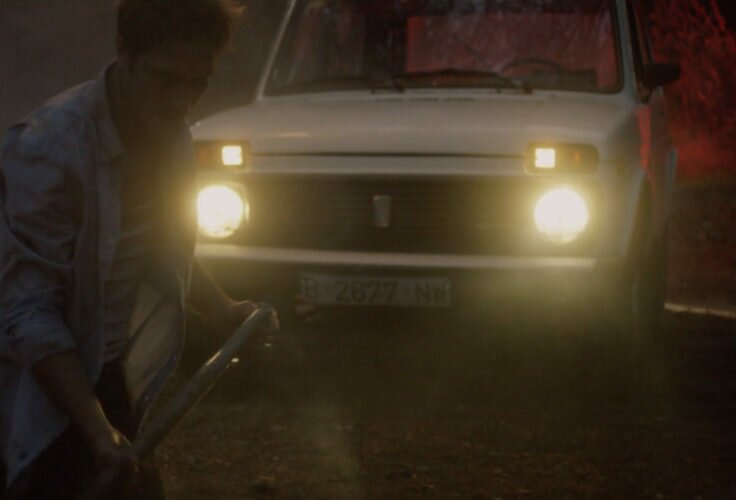Fernando Barbella cree que en el gremio publicitas, solo se puede llegar a confiar (personal y profesionalmente) en cinco personas. Aquí nos ayuda a identificarlas.
WE SHOULD

Please, before you continue reading this, have a browse of your Spotify, SoundCloud or iTunes playlists. In fact, press PLAY and enjoy some of your favorite tracks while reading this article…
Once on whatever music platform you’ve chosen, look at the tracks you listen to over and over again, that you know off by heart. If those include hits from Beastie Boys, Red Hot Chilli Peppers, Duran Duran, Madonna, Mick Jagger, Johnny Cash, Rage Against the Machine, David Bowie, INXS, Daft Punk, Metallica or Pharrell Williams (to mention but a few) you’ll be interested to know that there’s a good chance the producer behind the at least some of the tracks was Rick Rubin or Nile Rodgers.
For those not entirely acquainted with music production, a producer has many roles that may include, but are not limited to; gathering ideas for the project, selecting songs and/or musicians, coaching the artist and musicians in the studio, controlling the recording sessions, and supervising the entire process through mixing and mastering. Producers often also take on a wider entrepreneurial role, with responsibility for the budget, schedules, contracts and negotiations.
But hey, that sounds pretty much like the work we do at ad agencies. Or at least the sort of work we should be doing. But before getting philosophical with the advertising thing, let’s take a quick look at Nile and Rick to know a little bit more about them and what they have to say (focusing strictly on the professional part of their lives, just in case).
Rick on listening to his clients and managing time
When asked about what makes a great song great, Rick Rubin said “I don’t think you can define what it is, but you know it when you hear it”. If you read about Rick, you’ll find that he listens to all types of music, all the time, and that he’s been doing that since ever. Besides that special skill -knowing when something is going to rock the charts or what things need to be done to reach that status- he keeps on listening to new music, he keeps on learning, he keeps his mind open.
“Many people don’t listen, if you listen carefully, people explain to you what it is that they need”, he commented about how he approaches the process of working with artists and bands that are looking for a new hit.
And when he was asked about the time he spends with artists creating and crafting whatever new stuff they’re working on and how he deals with people in a rush, he said “From the beginning, all I’ve ever cared about is things being great. I never cared about when they were done. Because I also feel like I want the music to last forever. And once you release it, you can’t go back and fix it, so you really have to get it right. And that takes time”.


Nile on keeping it real and learning from everyone
Nile Rodgers (yes, the same man that composed Good Times, the song you can’t help but nod your head to), when talking about the nature of his lyrics said “I’ve never written a song that’s not nonfiction. I don’t know how to do that – I wish I did because I’d probably have more hit records. But every song that I’ve ever written comes from a real place, it’s a real story, and then I throw in fictional elements”. There you go – we like his music because we can relate to it, because it’s grounded in real life . What, perhaps, we used to call… ‘insight’.
Today Nile is sixty-two years old, and although he’s already a respected figure within the music industry, it’s quite inspiring to hear him say, “Whenever I meet artists I’m working with or that I’m going to work with there has to be something about them that I feel I’m gonna learn something from, or else it’s a very one-sided relationship and doesn’t make any sense”.
What about us?
If you read more on Rick and Nile (I highly recommend several articles about both of them published by Interview Magazine), you’ll find that both stress that hard work (not just inspiration) is required to create and build what we know as a hit. Both of them are referred to, simply, as ‘hit makers’ by lots of artists, other producers and music critics. And it’s not just about the skills or the tools, it’s about having a certain attitude, a point of view and a philosophy as well.
Imho, that is what we should aim for. We should be hit makers. That implies many things, as we already know at this point, but it’s helpful to state them explicitly at this point: managing our clients expectations and guiding them onto the next step in their paths or careers, hearing them and paying attention to the real thing behind all those slides and briefs we see on a daily basis, letting them know when they’re doing it wrong and helping them to create the next big thing, collaborating –I mean, for real– in the search of their own voice and tone, being brutally honest when needed, learning from them -and them from us- in order to understand the whole picture, learning about every single relevant new thing in our industry, keeping it real (instead of imagining unreal behaviors or scenarios to justify sort of safe decisions), working at the same kind of frequency at which the current pop culture pulses (remember when advertising used to shape pop culture instead of just following it?) and taking the time to create those hits with loving care, instead of delivering lots of “songs” trying to make it into the charts at any cost.
We should be hit makers. As individuals, we love ‘hits’. We play them over and over again. Can we do this for the brands we’re working on? In fact, they are asking for hits, all the time: brand awareness, sales, whatever we want to call it. Can we learn something from Nile or Rick? Do you want to be a hit maker?



















